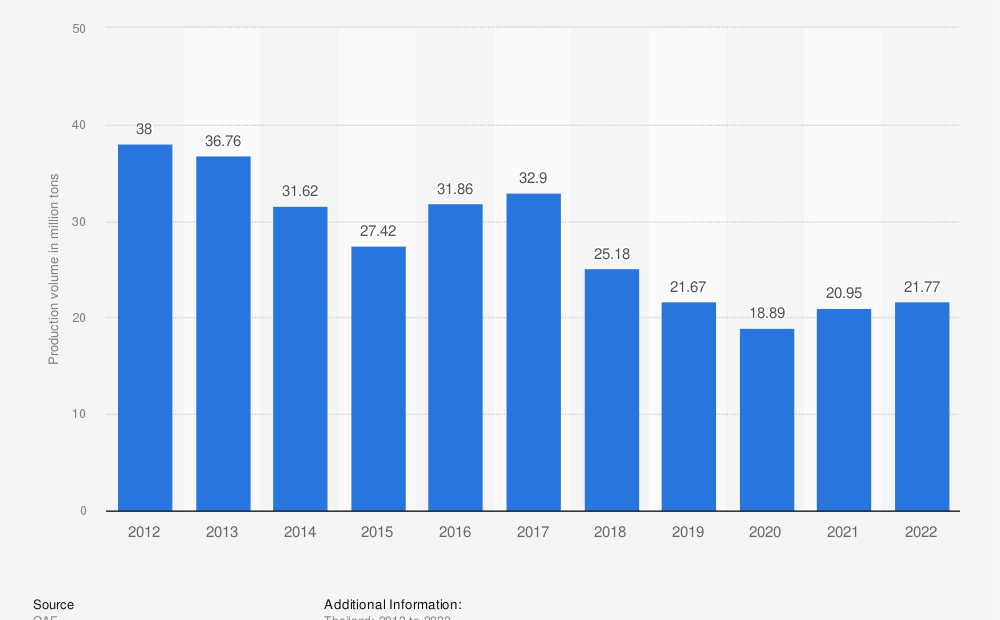No products in the basket.
The Thai government has approved measures worth 55 billion baht to stabilize rice prices for the upcoming harvest.
Key Takeaways
- The Thai government has approved measures worth 55 billion baht to stabilize rice prices for the 2023/24 harvest, including loans to farmers and agricultural cooperatives to delay the sale of paddy rice and intervene in the market.
- Farmers will have the option to delay selling their freshly harvested paddy rice for five months, with the government offering a fixed price and storage cost support, aiming to absorb 3 million tonnes of rice.
- The government is planning to modify its intervention policy on rice prices to improve farmers’ incomes by reducing subsidies, and discussions will be held with farmers to explore options such as improving production efficiency or adopting technological solutions.
The measures include loans to farmers to delay the sale of rice and loans to cooperatives to buy rice until prices improve.
Farmers can opt to delay selling their freshly harvested rice, with the government offering 12,000 baht per tonne for the rice and an additional 1,500 baht per tonne for storage costs.
The government will offer incentives to farmers participating in the scheme and aims to absorb 3 million tonnes of rice.
Additionally, the government plans to modify its intervention policy on rice prices to improve farmers’ incomes. Measures to stabilize animal feed corn prices were also approved.

Thailand is one of the world’s largest rice producers and exporters. In 2022, it produced about 21.5 million tons of rice, of which 5.6 million tons were exported to more than 150 countries. Rice is a staple food for most Thais and a major source of income for many farmers. However, rice production in Thailand faces several challenges, such as climate change, water scarcity, and market fluctuations.
Some of the current trends in Thailand’s rice production are:
- Increasing productivity and quality: The Thai government has implemented various policies and programs to improve the productivity and quality of rice, such as providing subsidies for seeds, fertilizers, irrigation, and crop insurance; promoting good agricultural practices and organic farming; supporting research and development on new rice varieties and technologies; and enhancing post-harvest management and processing.
- Diversifying rice products: The Thai government and the private sector have been developing and promoting various rice products to meet the changing consumer preferences and demands, both domestically and internationally. These include specialty rice (such as jasmine, hom mali, fragrant, colored, and glutinous rice), functional rice (such as germinated brown rice, pre-cooked rice, and fortified rice), and processed rice products (such as rice flour, noodles, snacks, beverages, and cosmetics).
- Expanding export markets: The Thai government and the private sector have been exploring new export markets for Thai rice, especially in Africa, the Middle East, and Latin America. They have also been strengthening their trade relations with existing markets, such as China, Japan, Indonesia, Malaysia, and the Philippines. They have also been participating in regional and international trade agreements, such as the Regional Comprehensive Economic Partnership (RCEP) and the Comprehensive and Progressive Agreement for Trans-Pacific Partnership (CPTPP), to gain more market access and reduce trade barriers.
Data from the Ministry of Commerce showed the kingdom exported rice valued at US$2.56 billion in the first seven months of 2023, an increase of 20.73% from a year earlier.
Discover more from Thailand Business News
Subscribe to get the latest posts sent to your email.















You must be logged in to post a comment.